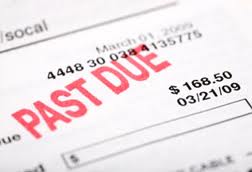 Tax Relief for Certain Students Whose Education Loans Were Discharged: The IRS has announced that taxpayers, who took out Federal student loans to finance attendance at schools owned by Corinthian Colleges, Inc., and whose loans were discharged under the Department of Education’s Defense to Repayment or Closed School discharge processes, will not have to recognize gross income as a result of the debt discharge. Furthermore, these taxpayers will not be required to increase their taxes or income if they claimed Section 25A education credits or took Section 221 interest deductions or Section 222 higher education expense deductions in a prior year for payments made with proceeds of these discharged loans. This tax treatment is effective for tax years beginning in 2015. Rev. Proc. 2015-57, 2015-51 IRB .
Tax Relief for Certain Students Whose Education Loans Were Discharged: The IRS has announced that taxpayers, who took out Federal student loans to finance attendance at schools owned by Corinthian Colleges, Inc., and whose loans were discharged under the Department of Education’s Defense to Repayment or Closed School discharge processes, will not have to recognize gross income as a result of the debt discharge. Furthermore, these taxpayers will not be required to increase their taxes or income if they claimed Section 25A education credits or took Section 221 interest deductions or Section 222 higher education expense deductions in a prior year for payments made with proceeds of these discharged loans. This tax treatment is effective for tax years beginning in 2015. Rev. Proc. 2015-57, 2015-51 IRB .
This is great news for our Tampa Bay clients who had the back luck to go to one of these schools. Similar to letting an underwater home go, the tax forgiveness is potentially huge for student loans, principal reductions on mortgage modifications, short sales and foreclosures. Normally, a person would have to file bankruptcy to discharge the potential tax debt for written off or forgiven debt. For more information, please contact Arkovich Law
 Reboot Your Life: Tampa Student Loan and Bankruptcy Attorney Blog
Reboot Your Life: Tampa Student Loan and Bankruptcy Attorney Blog







